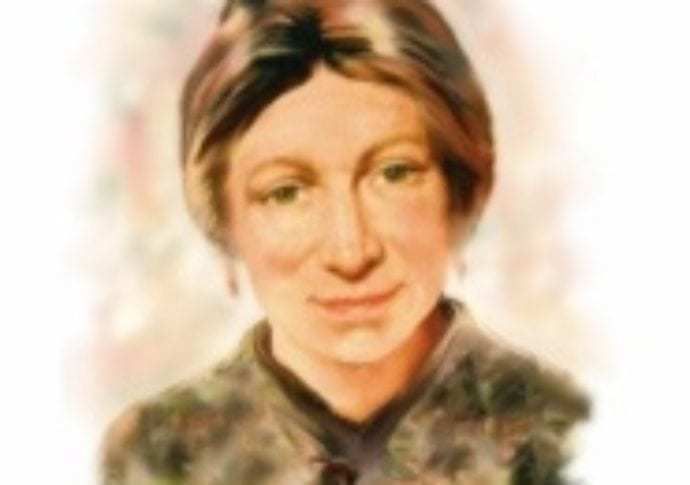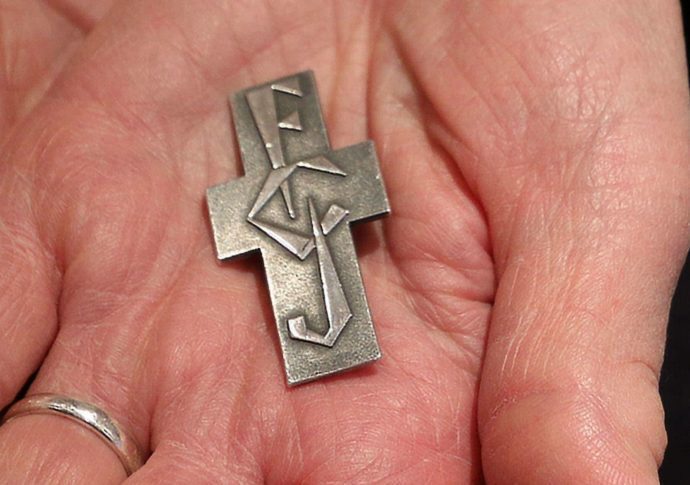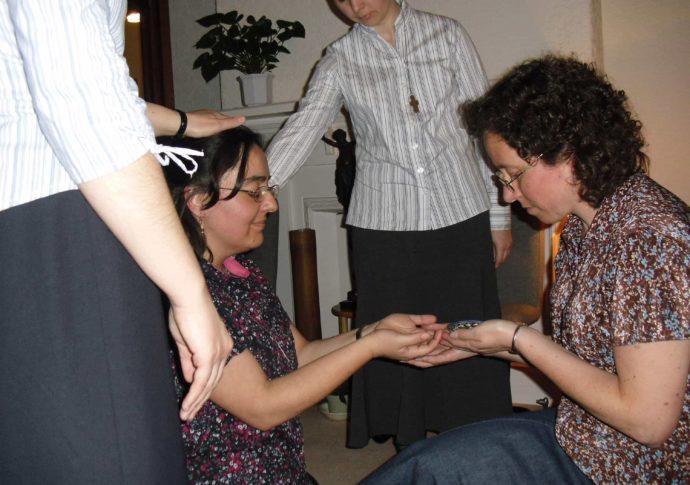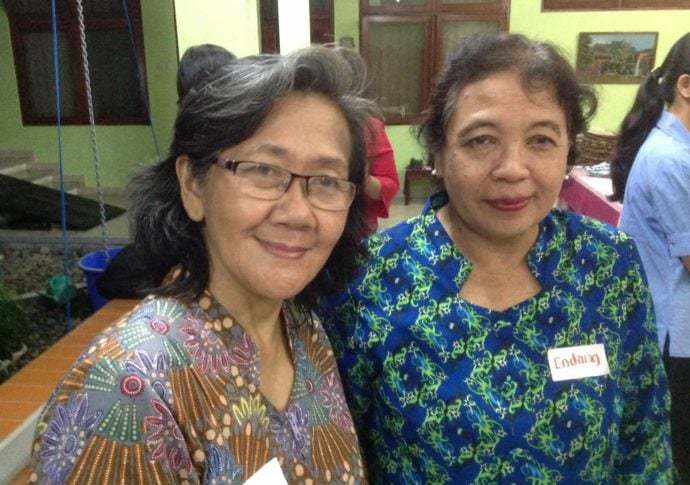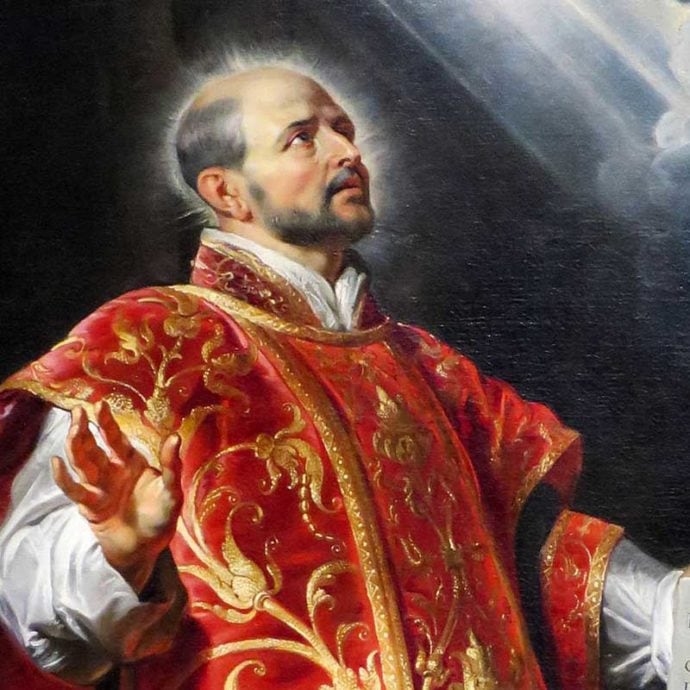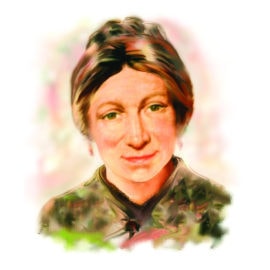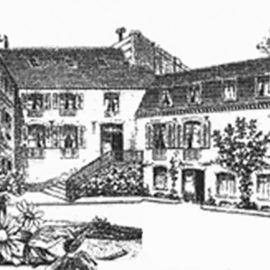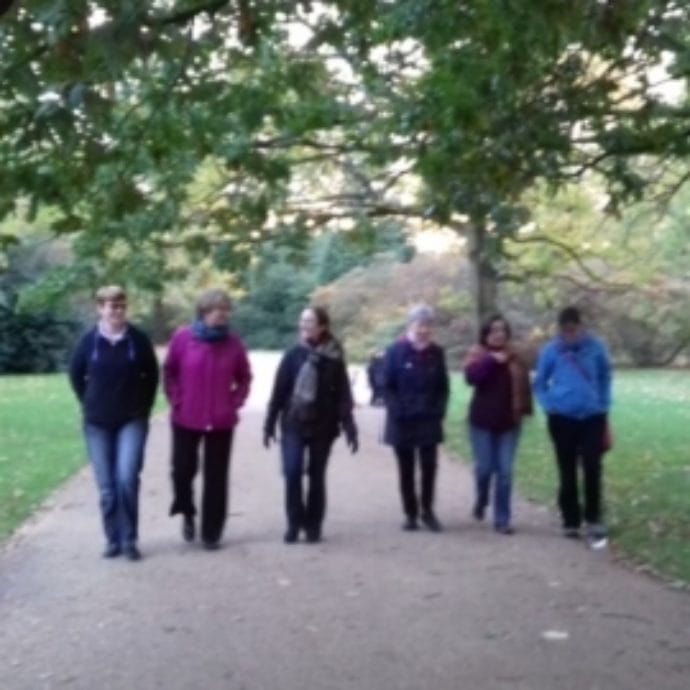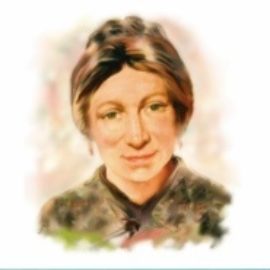Marie Madeleine, a young, grieving widow with a small son, born after his father’s death, was living through dark times. In 1814, she placed her 9-year-old son in the Jesuit College of Saint Acheul on the outskirts of Amiens. She continued to live in Bourges, but spent part of the year in Amiens, so that she could keep a close watch on Eugène’s welfare and studies. It was while she was in Amiens that the Jesuits began to play a central role in the discernment of her future vocation. Although at first she admits to having had ‘no inclination whatsoever towards religious life’, under the guidance of the Jesuits, her prayers and reflections gradually seemed to be leading her in that direction.

In testing her vocation, the Jesuits put Marie Madeleine through many trials, but finally they agreed that she should begin. When she needed it most, they not only seemed to withdraw their support, but also at times actively opposed what she was trying to do. There were moments when she was tempted to give up everything. But in spite of setbacks, Marie Madeleine persevered and in 1820 she opened the first FCJ house in Amiens, where the little community led a simple, prayer-centred, hardworking life, starting early and finishing late.
The apostolic congregation she founded was explicitly inspired by Ignatian spirituality, and the FCJ Constitutions have their origin in those of the Society of Jesus.
The Constitutions of a religious congregation, by attempting to translate a vision into a way of living, articulate the corporate identity of the group and provide a structure within which it can grow and flourish. Marie Madeleine admired the Jesuit Constitutions, and wished to adopt them, with certain minor adjustments, for her own congregation. In her lifetime, the Jesuits refused to allow her to use their Constitutions in their entirety, but her successors continued to request permission to do so, and this was eventually granted in 1985.
Read Marie Madeleine d’Houët and the Jesuits, an article by Teresa White, fcJ appeared in The Way, 59/2 (April 2020), 101–112 and reproduced with permission.
About St Ignatius
St. Ignatius Loyola was born in 1491, one of 13 children of a family of minor nobility in northern Spain. As a young man Ignatius Loyola was inflamed by the ideals of courtly love and knighthood and dreamed of doing great deeds.
But in 1521 Ignatius was gravely wounded in a battle with the French. While recuperating, Ignatius Loyola experienced a conversion. Reading the lives of Jesus and the saints made Ignatius happy and aroused desires to do great things. Ignatius realized that these feelings were clues to God’s direction for him.
Over the years, Ignatius became expert in the art of spiritual direction. He collected his insights, prayers, and suggestions in his book the Spiritual Exercises, one of the most influential books on the spiritual life ever written. With a small group of friends, Ignatius Loyola founded the Society of Jesus, or the Jesuits. Ignatius conceived the Jesuits as “contemplatives in action.” This also describes the many Christians who have been touched by Ignatian spirituality.
Taken from IgnatianSpirituality.com





